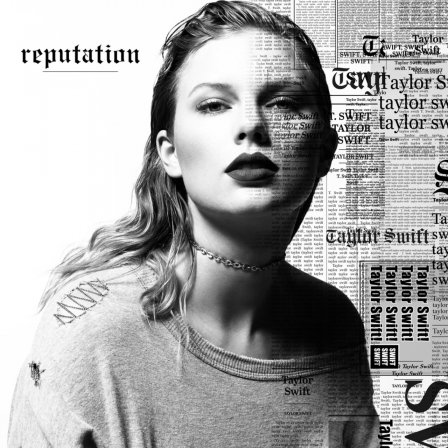“Here’s something I’ve learned about people.” 1

We talk like there’s only one thing. We assume the inevitability of the world the way it is. We maintain that we are singulars existing linearly in line with a reality that is already dictated, long ago and unchangeably so. Things that have been remain forever as are echos of were; the bottom line is the bottom. Things are their reputations, more or less all over again and always: “Hold onto the memories/ They will hold onto you.”
It sucks sometimes, this reliance on reputation. It helps sometimes, like when you have to drag legs out of bed to get on the road to get on the clock, to get goods and achieve and survive. Some confidence in an unmoving reality is a comfort. It helps, it hurts. We wind up wrenching dissatisfaction back into reassurance. I am my me, and this oh-well world is the way things are. I don’t feel good, but maybe just enough can really actually be enough.
Except if you slip once or squint a little, there’s room to glitch and wiggle. Can you see you look two ways? Can you break2 your reputation’s reflection? There’s a lot more to you than there is to you.

“We think we know someone, but the truth is that we only know the version of them they have chosen to show us.” We think we know the world, but we just know the version everyone’s told us is. If we could peel back some of the inevitables, we might get something better than just enough. Are you ready for it?
“…Ready For It?” is track one on Taylor Swift’s sixth studio release, Reputation. It’s a scattered and fried slab of poached sounds: some trap drums that thrum, some liberally-dropped bass gristles. Taylor Swift waxes puns (“We’ll move to an island/ And he can be my jailer, Burton to this Taylor”) and lobs lust at the object of her attentions, “Younger than my exes, but he act like such a man, so.” The Joseph Kahn-helmed video, an unpinnable and unwinnable sci-fi slop, pits black-hooded maybe-replicant Taylor Swift against captive probably-real/sometimes-on-a-horse Taylor Swift. “…Ready For It?” is impossibly stupid, a wheeling stab at a pop snarl that’s mostly burnt marshmallows. Sometimes I’m really bored by it. Sometimes I feel like dancing.
There are plenty of reasons to not listen to Reputation. It’s an assertion of privileged desires (the dreary and overstuffed “King Of My Heart”) and a defense of bad choices (“I Did Something Bad,” flatulating baroque dubstep) made by Taylor Swift, who doesn’t exist, not like we do in our days and jobs and loves and dog walks. Taylor Swift Co. broke after Kanye West Inc. won, and neither of those things are real people and there’s nothing to win or lose except time and patience and maybe hope in pop music. Reputation is the boring screaming gesture on behalf of a marketing fleet, an advertisement reaching out expecting your righteous empathy.

Except if Taylor Swift could be a person (she is, somewhere), she could break a little; Reputation is what those shards might sound like, little slivers swept up and chipping into each other. Reputation applied to pop’s mythological (and imaginary) narrative is part marketing strategy and part public fanfic: Britney Spears, an American Dream rotted in incubus; Beyoncé Knowles-Carter, goddess fixture birthing futures; Mariah Carey, the renewed every new year train wreck. It’s nearly always our divas who we wall up and scrutinize. And that’s on us, a failure we’re still trying to right. Even in the phantasm field of pop music (supposedly dreams, supposedly forever), we’re all too content to script and restrict the narrative.
“The point being, despite our need to simplify and generalize absolutely everyone and everything in this life, humans are intrinsically impossible to simplify.” The point being, there’s a next you for you to be, if you want it.

Over the sirens and clomps of her broken Reputation, Taylor Swift sings, “This is why we can’t have nice things darling/ Because you break them, I had to take them away.” It’s the sound of an anxious and confident artist striving and trying to, like on her soundest victories, connect. But where past Taylor Swifts have sheened in cohesion, Reputation is all jagged edge. It’s not edgy, to be sure: the shapes of these songs (admirably co-fashioned by Jack Antonoff and Max Martin and Shellback) welcome accessibility and the abundant, and occasionally redundant hooks are like a shark’s dermal scales, interlocked rows of teeth that sink and hit in waves. You’ll all chomp the shouted chorus of “This Is Why We Can’t Have Nice Things” when you’re waiting for that Black Friday night table at the hometown Denny’s; “Getaway Car” has at least five spots you’ll hum when you’re shopping for a partner’s bathrobe or a cat’s favorite holiday-shaped crunchies. You’ll be in Target. Like listening to Reputation, you’ll feel engaged and a little let down. But you might dance, too.
That first single “Look What You Made Me Do” has a no-chorus that’s pretty dynamite. I swore there was nothing there until it wouldn’t go away. Taylor Swift’s care for craft remains, even if some of the flourishes are frantic. The good pop stuff (the kind that isn’t there until it won’t go away) looks like < >, a less-than/greater-than ballet: the artist has a single detail that gets blown up into a universal that resounds everywhere, only to re-narrow down to another individual. And for all the exhausting and eye-rolling album-roll out, the goddamn trucks, the perilously (and nearly damningly) apolitical hedging, Reputation is a testament to pop’s plastic doubling time. Taylor Swift broke some. Instead of Miley’s apologetic retreat into self-reducing nostalgia mode or Katy Perry’s cover band fart stab at #midtempo #weird, Taylor Swift and every single one of her problems doubles down on an exploratory pop mode, winked at on Red, exploded into on 1989. Taylor Swift broke some and didn’t apologize for breaking the reality we set for her. “Look what you just made me do.”
And that pronoun might as well be about us. It’s Kanye and Kim, for sure and stupidly. But at its highest points, Reputation lobs pop responsibility back at the only party that matters: us. “All eyes on you, my magician/ All eyes on us/ You make everyone disappear, and/ Cut me into pieces.” Without a public willing to eviscerate and fandomize and tweet for, reputations vanish. “So it goes/ I’m yours to keep/ and I’m yours to lose.” Taylor Swift is willing to endure the idolatry and the idiocy; she’ll kill her one self dead in order to be the next new one in conversation with us (already immortal, never not cringe-worthy but also the most I’ve laughed in a pop song this year): “I’m sorry, the old Taylor can’t come to the phone right now. Why? Oh. Because she’s dead.” She’ll point us in a new direction, one different from how things look now. Like anything intrepid, it might be way off course of where we thought we were headed. But pop’s premise is plasticity, a precedent set when The Beatles and Stevie Wonder and Kate Bush promised with each next thing that the next next thing would be different and changed in some way. It would react to the world, but not without a vision to change it: “So call it what you want yeah, call it what you want to”
It’s still icky. It’s important not to forget the icky stuff. Corporatizing forces will see how we like to dance and change and move forward, and they’ll sniff a buck.

Part rumination on engaging with the pop icon and part deep end even after eating the meal, Reputation keeps the ball in the air, argues for moving forward, even if it’s herky jerky. It’s infuriating, how coached some of these flows are. It’s baffling how “End Game” spots guest verses from Future (!) and Ed Sheeran (!!) and manages to be a song fit snug in the part of our brains that makes us sway in the face of a world’s despairing. It’s joyous to barely see the invisible pulleys pulling my heart in on the hemi-clap of “Getaway Car;” those same pulleys almost undo the singer’s beating heart on “New Year’s Day.” Reputation is a bad idea, but it’s still an idea, the voice of a stranger I’d (want to) recognize anywhere. Reputation, almost utopia and frustrated icon splaying every direction, wishes the world in the new year will be a better place. Reputation has the ill-founded gall to actually envision what that world might look and sound like, even if it’s not this.
1. Bold text in this review is taken from Taylor Swift’s introduction to the Reputation, CD + Target Exclusive Magazine Vol. 2. (I bought this at the same Target where I bought my CD copy of Yeezus.)
2. Susan Sontag: “Photographed images do not seem to be statements about the world so much as pieces of it, miniatures of reality that anyone can make or acquire.” Reputation does not seem to be a statement about the world so much as pieces of it, refractions that shine some of our part in the pop story back on the artifact.”
More about: Taylor Swift




